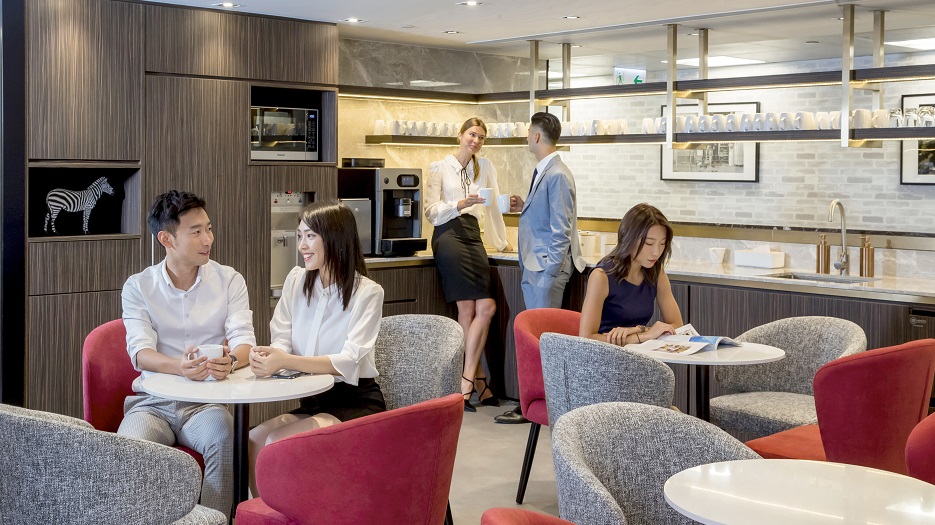Boosting Employee Morale: the Transformative Power of Flexible Offices

In an era of evolving workplace dynamics, there has been different changes in the landscape of office space providers. Enter the realm of flexible offices – a concept that is redefining the way we work and reimagining the link between our work environment and employee morale. In this article, we'll explore how flexible offices, with a particular focus on business agility, can elevate employee morale and foster a more engaged and motivated workforce.
Understanding Flexible Offices
What do flexible offices entail? These spaces represent a departure from the conventional office model, offering a versatile range of workspaces that cater to the dynamic needs of businesses and employees. A flexible office space is a dynamic workspace that is designed to fit the goals and aspirations of emerging and thriving corporates and professionals. Flex space typically includes serviced offices that can be customised according to needs.
The advantages of flexible offices extend beyond mere convenience. They encompass elements that contribute to a positive work environment, which, in turn, can lead to improved morale among employees.
The Significance of Employee Morale
Employee morale is the underpinning of a healthy and productive workplace. It encompasses the overall satisfaction, motivation, and well-being that employees experience in their jobs. High morale translates into increased productivity, better retention rates, and a more conducive atmosphere for creativity and innovation.
A myriad of factors influences employee morale, including compensation, job security, and workplace culture. In this article, we will focus on the drivers of employee morale, particularly emphasising the role of business agility in flexible offices.
Key Drivers of Employee Morale
Business Agility
Business agility is the ability of an organisation to adapt and respond promptly to changing market conditions, clients’ demands, and internal needs. In the context of the workplace, agility translates into an organisation's capacity to pivot, innovate, and thrive in a fast-changing business environment.
Flexible offices play a pivotal role in promoting business agility. They provide an infrastructure that enables employees to choose their work environment based on the task at hand. This flexibility encourages creative problem-solving and empowers employees to select spaces that align with their project requirements.
For instance, Compass Offices, a leading provider in the Asia Pacific flexible office market, exemplifies business agility in action. The workspaces it offers can be customised to accommodate various business’ needs. It can make room and enable moving parts to be structured according to the preference of clients’ business. This adaptability allows employees to respond quickly to emerging opportunities and challenges, fostering a culture of innovation and adaptability.
Work-Life Balance
Achieving a healthy work-life balance is fundamental to employee satisfaction and morale. Flexible offices can provide employees with the freedom to tailor their schedules and work environments to better align with their individual needs.
Imagine being able to choose between a serene private office or a vibrant co-working area depending on your mood and the nature of your tasks. Such flexibility empowers employees to strike a healthier work-life equilibrium, reducing stress and contributing to higher morale.
Employee Autonomy
Employee autonomy refers to the level of independence and control employees have over their work. It is a key driver of morale, as individuals thrive when they feel trusted and empowered in their roles.
Flexible workspaces inherently promote employee autonomy. In these environments, employees can make choices about when and how they work. This level of freedom instills a sense of ownership over one's work, leading to increased job satisfaction and morale.
Collaborative Opportunities
Collaboration is a linchpin for innovation and problem-solving in the modern workplace. Flexible office layouts are designed to facilitate collaboration by providing various spaces for team meetings, brainstorming sessions, and impromptu discussions.
When employees can easily connect and collaborate, they feel more engaged and motivated. Collaborative opportunities in flexible offices can lead to the generation of fresh ideas, greater synergy among team members, and ultimately, improved morale.
Wellness and Comfort
Employee well-being is closely intertwined with morale. Flexible offices can prioritise employee wellness and comfort by creating environments that promote physical and mental health. This includes ample natural light and spaces for relaxation.
Employees who work in such settings report reduced stress levels, increased job satisfaction, and a stronger sense of belonging to their workplace, all of which enhance morale.
Business Agility as a Catalyst for Employee Morale
Among the various drivers of employee morale, business agility stands out as a cornerstone. Companies that embrace agility and flexible workspace solutions are better equipped to navigate the ever-changing business landscape. They can pivot rapidly, adapt to new challenges, and foster a culture of innovation and employee empowerment.
Compass Offices exemplifies business agility by continuously evolving their strategies to meet market demands. Their adaptable work environments, coupled with flexible office designs, can enable businesses to maintain high levels of employee morale.
Overcoming Challenges in Transitioning to Flexible Offices
While the benefits of flexible offices are evident, implementing them can pose challenges for employers. Common concerns include maintaining company culture, and ensuring data security. However, these challenges can be addressed with proper planning, communication, and technology solutions.
Measuring the Impact of Flexible Offices on Morale
To gauge the impact of flexible offices on employee morale, companies can utilise various methods, such as employee surveys, productivity metrics, and retention rates. It's essential to monitor both short-term and long-term effects to ensure that the benefits are sustained over time.
Practical Insights for Employers
For employers looking to introduce flexible office solutions and enhance employee morale, here are some practical tips:
Assess Your Organisation's Needs: Understand your company's unique requirements and tailor your flexible office space approach accordingly.
Effective Communication: Clearly communicate the transition to flexible offices, emphasising the benefits and addressing concerns.
Training and Support: Provide training to employees on using flexible office tools and technologies effectively.
Balance Flexibility and Structure: Maintain a balance between flexibility and the need for structure to ensure productivity and collaboration.
Feedback and Iteration: Continuously seek feedback from employees and make iterative improvements to the workspace and policies.
Conclusion
In summary, flexible offices have emerged as a powerful catalyst for enhancing employee morale in today's rapidly evolving business landscape. By embracing drivers such as business agility, work-life balance, employee autonomy, collaborative opportunities, and prioritising wellness and comfort, organisations can create environments where employees are happier, more engaged, and more productive.
By prioritising employee morale through flexible office solutions, businesses can position themselves for long-term success while ensuring their workforce remains motivated and satisfied. In doing so, they create a win-win scenario where employees are more content, and businesses are more agile and competitive in the marketplace.





